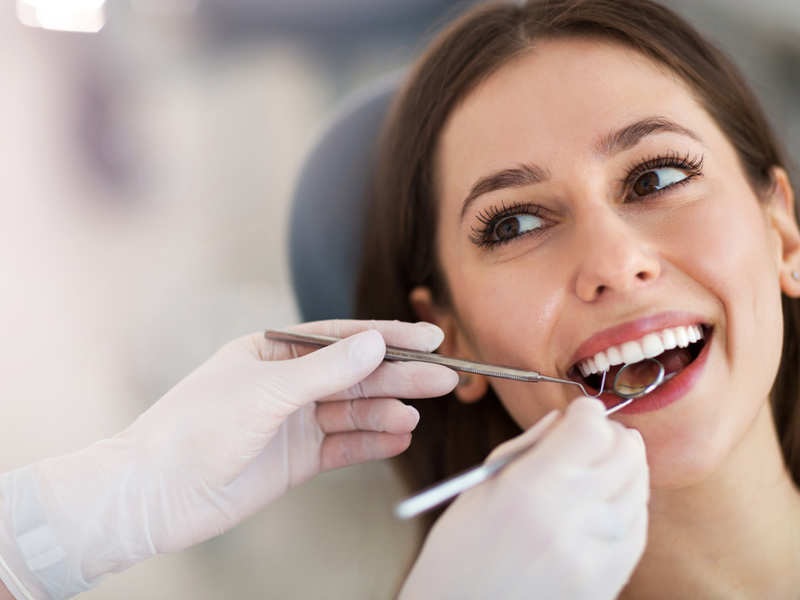Gum disease, also known as periodontal disease, is a common yet serious condition that affects a significant portion of the adult population worldwide. It is characterized by swollen, tender gums. If left untreated, it can lead to tooth loss and has been linked to other serious health conditions, including heart disease and diabetes. However, with advancements in dental technology and treatment methods, beating gum disease is more achievable than ever before. This blog post explores the latest cutting-edge treatments for maintaining optimal periodontal health.
Understanding Periodontal Disease
Periodontal disease ranges from simple gum inflammation, known as gingivitis, to severe damage to the soft tissue and bone that support the teeth, known as periodontitis. The primary cause of gum disease is plaque buildup, a sticky film of bacteria that forms on your teeth. If plaque is not removed through regular brushing and flossing, it can harden into tartar, which is much more challenging to eliminate.
The Role of a Periodontist
A periodontist is a dental specialist who focuses on the prevention, diagnosis, and treatment of periodontal disease and the placement of dental implants. With specialized training in these areas, periodontists are equipped to provide advanced care for patients experiencing complex periodontal issues.
Cutting-Edge Treatments for Periodontal Health
The field of periodontology has seen remarkable advancements, offering new hope for patients struggling with gum disease. Here are some of the most promising cutting-edge treatments:
1. Laser Therapy
Laser therapy is a minimally invasive treatment that uses laser light to remove diseased tissue and harmful bacteria from the gums. This procedure promotes tissue regeneration and can reduce the need for more invasive surgeries. One of the key benefits of laser therapy is its ability to precisely target diseased areas without damaging healthy tissue, leading to faster recovery times.
2. Localized Antibiotic Delivery
This treatment involves placing antibiotics directly into the periodontal pockets, the spaces that develop between the gums and teeth in cases of gum disease. These localized antibiotics can significantly reduce bacterial infection and inflammation, allowing the gums to heal more effectively.
3. Regenerative Procedures
Regenerative procedures aim to reverse some of the damage caused by periodontal disease by regenerating lost bone and tissue. Techniques such as bone grafts, tissue-stimulating proteins, and guided tissue regeneration can encourage the body’s natural ability to regenerate bone and gum tissue, providing a more stable foundation for the teeth.
4. Dental Implants
For patients who have lost teeth due to periodontal disease, dental implants offer a durable, natural-looking replacement option. Implants are anchored into the jawbone and capped with a replacement tooth, providing both functional and aesthetic benefits. The process involves careful planning and precision, ensuring the implant integrates seamlessly with the surrounding bone and gum tissue.
5. Host Modulation Therapy
Host modulation therapy represents a novel approach to treating periodontal disease by targeting the body’s response to inflammation. This treatment modulates the patient’s immune response to reduce tissue destruction and promote healing. Certain medications, such as anti-inflammatory drugs, can be used to adjust the body’s defense mechanisms, offering a complementary strategy to conventional periodontal treatments.
6. Gene Therapy
While still in the experimental stages, gene therapy holds significant potential for periodontal disease treatment. By introducing specific genes into the affected tissues, this innovative approach aims to enhance tissue regeneration and repair. Gene therapy could potentially address the underlying causes of periodontal disease at a molecular level, offering a long-term solution to gum disease and associated bone loss.
7. 3D Printing in Dentistry
3D printing technology is revolutionizing various medical fields, including dentistry. In periodontal treatment, 3D printing can be used to create custom grafts, implants, and other dental materials tailored to the patient’s specific anatomy. This precision enhances the effectiveness of treatments such as bone regeneration and implant placement, leading to improved outcomes and quicker recovery times.
The Role of Diet and Nutrition in Periodontal Health
While cutting-edge treatments are essential for managing advanced periodontal disease, the role of diet and nutrition should not be overlooked. A balanced diet rich in vitamins, minerals, and antioxidants can support gum health and reduce inflammation. Foods high in vitamin C, vitamin D, calcium, and omega-3 fatty acids are particularly beneficial for maintaining strong, healthy gums.
Lifestyle Modifications for Optimal Periodontal Health
Lifestyle choices play a crucial role in the prevention and management of gum disease. Smoking cessation is one of the most significant steps an individual can take to improve periodontal health, as smoking is a major risk factor for the development and progression of gum disease. Managing stress and ensuring adequate hydration are also important for maintaining a healthy oral environment.
The Future of Periodontal Health
The future of periodontal health is bright, with ongoing research and technological advancements opening up new avenues for treatment and prevention. Personalized medicine, where treatments are tailored to the individual’s genetic makeup, is on the horizon, promising even more effective and targeted approaches to combating periodontal disease.
Engaging with a Dental Professional
If you’re concerned about gum disease or are interested in learning more about the latest treatments, the first step is to engage with a dental professional. A qualified periodontist can provide a comprehensive evaluation of your periodontal health and recommend a tailored treatment plan to address your specific needs.
Conclusion
Gum disease is a prevalent condition that poses significant risks to oral and overall health. However, with the advent of cutting-edge treatments and a strong emphasis on prevention, achieving and maintaining optimal periodontal health is more accessible than ever. By staying informed about the latest advancements, maintaining good oral hygiene practices, and making healthy lifestyle choices, individuals can significantly reduce their risk of periodontal disease and enjoy a lifetime of healthy smiles.



